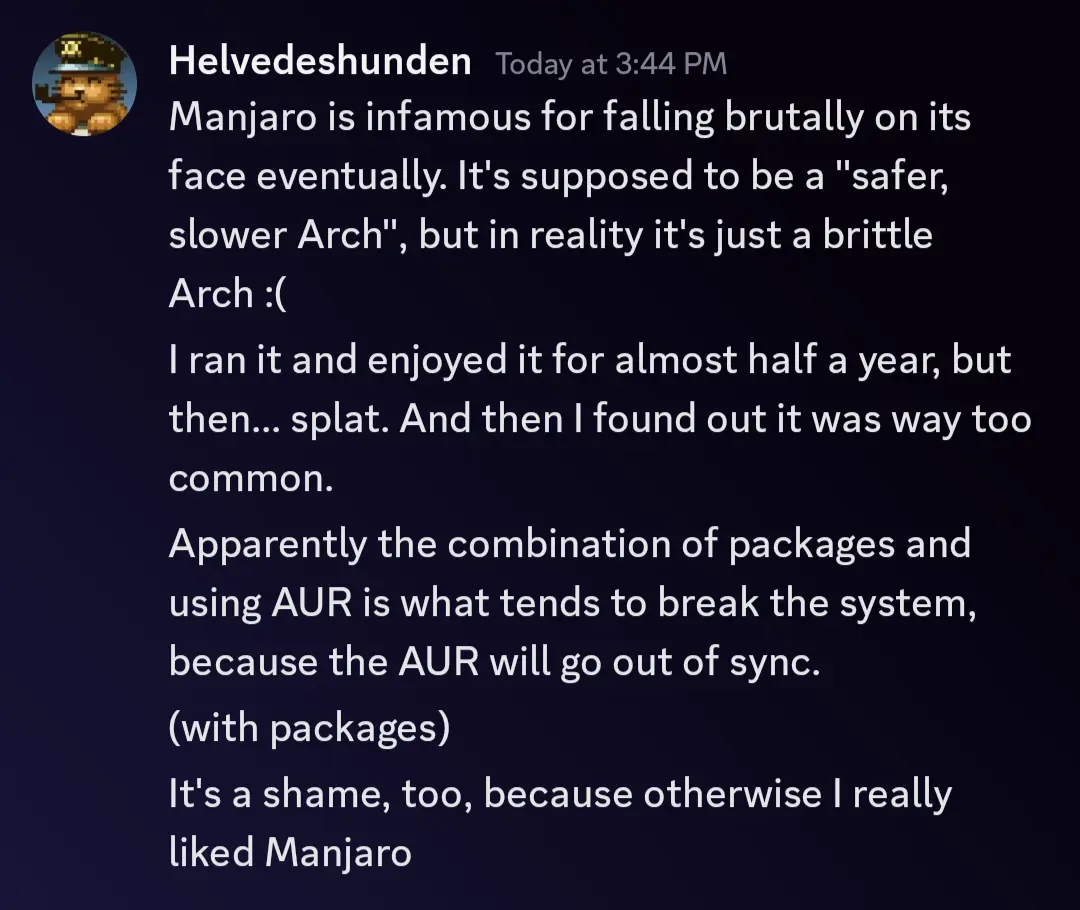249
you are viewing a single comment's thread
view the rest of the comments
view the rest of the comments
this post was submitted on 21 Dec 2023
249 points (94.3% liked)
Linux
48786 readers
582 users here now
From Wikipedia, the free encyclopedia
Linux is a family of open source Unix-like operating systems based on the Linux kernel, an operating system kernel first released on September 17, 1991 by Linus Torvalds. Linux is typically packaged in a Linux distribution (or distro for short).
Distributions include the Linux kernel and supporting system software and libraries, many of which are provided by the GNU Project. Many Linux distributions use the word "Linux" in their name, but the Free Software Foundation uses the name GNU/Linux to emphasize the importance of GNU software, causing some controversy.
Rules
- Posts must be relevant to operating systems running the Linux kernel. GNU/Linux or otherwise.
- No misinformation
- No NSFW content
- No hate speech, bigotry, etc
Related Communities
Community icon by Alpár-Etele Méder, licensed under CC BY 3.0
founded 5 years ago
MODERATORS

Did you read that they moved away from Manjaro? So pamac is not going to cut it. How does pamac help them on Fedora?
Many of the recommendations are to install EndeavourOS where your pamac instructions would work ( although pamac is not installed by default ).
In EndeavourOS, “yay -S syncterm” would work out-of-the box on a fresh EOS install. No need even to “enable the AUR”.
In my opinion, that is even simpler than what you are proposing for Manjaro. And since EOS uses real Arch packages, it is less likely to break or complain about package versions than Manjaro is.
I used to use Manjaro. It broke my system and I had many AUR problems. To my ears, Manjaro is bad advice. I am a happy EOS user for years now.